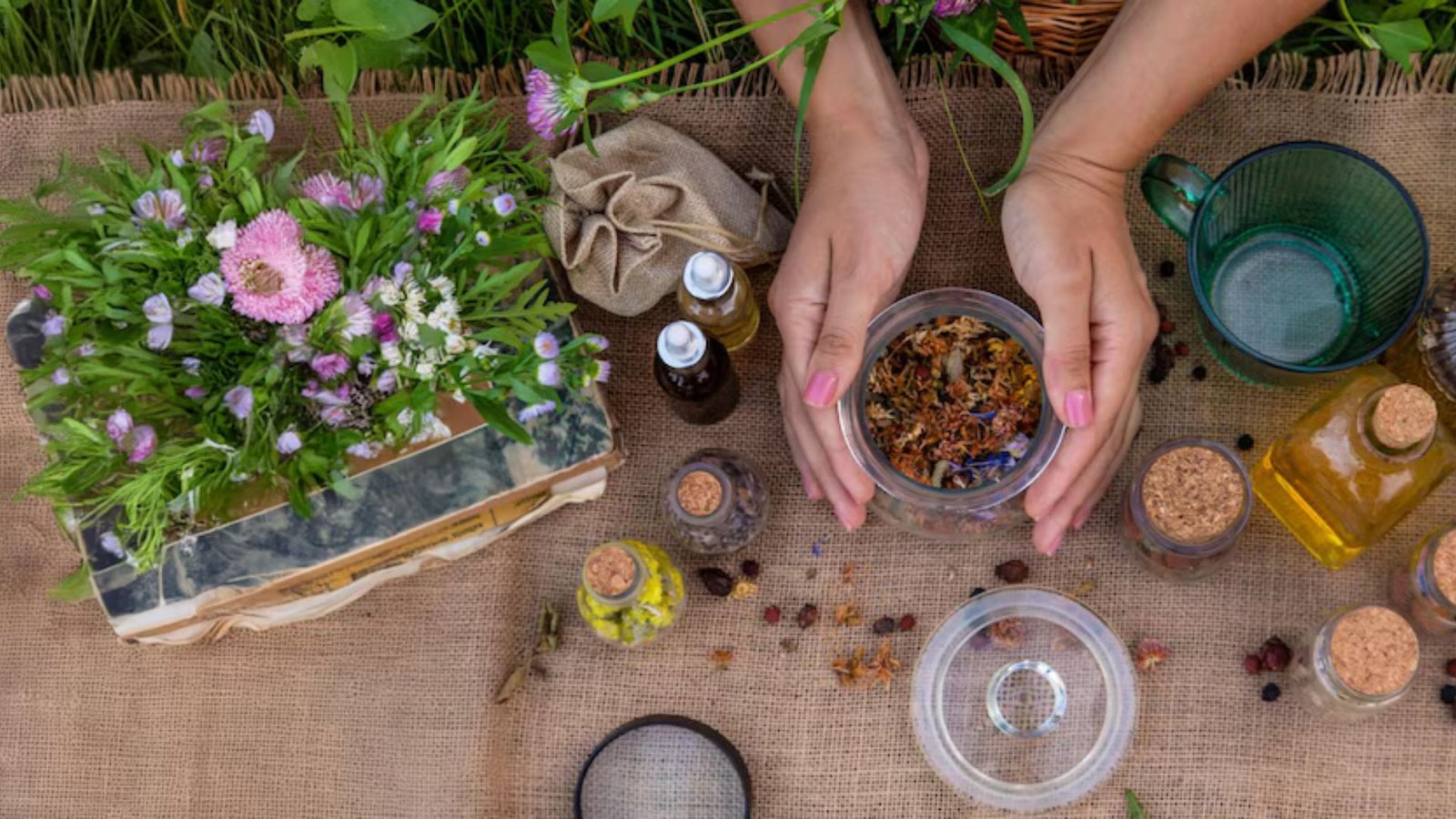Anxiety is a natural response to stress, but when it becomes persistent or overwhelming, it can disrupt daily life. Many people are seeking natural ways to manage anxiety, and herbal remedies have gained popularity due to their soothing effects and minimal side effects. The good news is that there are several herbs with proven benefits that may help alleviate symptoms of anxiety and promote a sense of calm. In this article, we will explore the best herbs for anxiety relief, their benefits, and how to use them.
Understanding Anxiety and Its Impact
Before diving into herbal solutions, it’s important to understand what anxiety is and how it affects the body and mind. Anxiety is often characterized by feelings of worry, fear, or unease. It can be triggered by specific situations or appear without any clear reason. Chronic anxiety can lead to physical symptoms such as headaches, muscle tension, fatigue, and digestive issues.
Managing anxiety often involves a combination of lifestyle changes, therapy, and medication. However, many individuals are turning to natural remedies like herbs to complement traditional treatments and find relief from their anxiety.
Popular Herbs for Anxiety Relief
Lavender
Lavender is one of the most well-known herbs for anxiety relief. The calming properties of lavender are well-documented, and it has been used for centuries to reduce stress and anxiety. Studies suggest that inhaling lavender essential oil or using it in aromatherapy can help reduce symptoms of anxiety. Lavender’s soothing fragrance can trigger the brain to release relaxing chemicals, promoting a sense of calm.
How to use it:
Use lavender essential oil in a diffuser or apply it to your wrists and temples.
Drink lavender tea made from dried flowers to experience its calming effects.
Consider lavender supplements, available in capsule form.
Chamomile
Chamomile has long been a go-to herb for relaxation and sleep. It is known for its mild sedative effects, which can help ease anxiety and promote restful sleep. Chamomile works by influencing the brain’s GABA receptors, which help regulate mood and stress levels. This herb is often consumed as tea, but chamomile supplements are also available for those who prefer a more concentrated form.
How to use it:
Brew chamomile tea before bedtime or during moments of stress.
Use chamomile essential oil in a diffuser for calming aromatherapy.
Take chamomile supplements for more potent effects.
Ashwagandha
Ashwagandha is an adaptogenic herb, meaning it helps the body cope with stress. It has been used in Ayurvedic medicine for centuries to balance the body’s stress response. Studies show that ashwagandha can reduce levels of cortisol, the hormone responsible for stress. By regulating cortisol levels, ashwagandha can help ease anxiety and promote a sense of relaxation.
How to use it:
Take ashwagandha in capsule or powder form as a supplement.
Combine ashwagandha powder with warm milk or a smoothie for a calming drink.
Consult with a healthcare provider for the right dosage.
Passionflower
Passionflower is another herb that can effectively reduce anxiety. Known for its calming effects, passionflower has been shown to increase GABA levels in the brain, which helps reduce feelings of anxiety and promote relaxation. It is often used to treat anxiety, insomnia, and nervousness.
How to use it:
Drink passionflower tea for instant anxiety relief.
Take passionflower supplements to enjoy its calming effects.
Consider tinctures or extracts for a more potent dose.
Lemon Balm
Lemon balm, a member of the mint family, is a fragrant herb with powerful anti-anxiety properties. It works by increasing the production of the neurotransmitter GABA, which promotes relaxation. Lemon balm is known for its ability to reduce anxiety-related symptoms, improve mood, and even enhance cognitive performance.
How to use it:
Brew lemon balm tea for a relaxing effect.
Use lemon balm essential oil in aromatherapy to calm the mind.
Take lemon balm supplements to help reduce stress levels.
Valerian Root
Valerian root is often used as a natural remedy for insomnia, but it is also effective in reducing anxiety. It has sedative properties that help calm the nervous system, making it an excellent option for individuals who experience anxiety and sleep disturbances. Valerian root can promote relaxation and alleviate feelings of restlessness.
How to use it:
Take valerian root in capsule or tablet form for maximum effectiveness.
Drink valerian root tea before bed to promote sleep and reduce anxiety.
Use valerian root tinctures for quicker results.
Kava Kava
Kava kava is a potent herb that has been used for centuries in the South Pacific to promote relaxation and reduce anxiety. Research has shown that kava kava can significantly reduce anxiety without causing sedation or impairing cognitive function. It works by increasing GABA activity in the brain, which helps to calm the nervous system.
How to use it:
Take kava kava in supplement form for consistent results.
Brew kava kava tea for a natural way to reduce anxiety.
Be mindful of dosage, as excessive use of kava kava can have adverse effects on the liver.
Rhodiola Rosea
Rhodiola rosea is another adaptogenic herb that can help manage anxiety and improve mental resilience. It has been shown to reduce the physical and mental effects of stress and improve mood. Rhodiola can help the body adapt to stressful situations, enhancing endurance and reducing feelings of fatigue and anxiety.
How to use it:
Take rhodiola rosea in capsule or tablet form as a supplement.
Use rhodiola in powder form, which can be added to smoothies or beverages.
Consult a healthcare provider for the appropriate dosage.
Other Herbs That May Help with Anxiety
Holy Basil (Tulsi)
Holy basil, or tulsi, is a powerful herb used in traditional medicine to reduce stress and promote mental clarity. It has adaptogenic properties that help the body cope with stress and anxiety. Holy basil can improve the body’s response to stress, enhance mood, and promote overall well-being.
St. John’s Wort
St. John’s Wort is best known for its use as a natural antidepressant, but it can also help alleviate anxiety symptoms. It works by increasing the availability of serotonin in the brain, which can improve mood and reduce feelings of anxiety.
How to Use Herbs for Anxiety Relief Safely
While herbs can offer significant benefits for anxiety relief, it’s important to use them properly. Here are a few tips for safe and effective use:
Consult with a healthcare provider: If you are on medication for anxiety or other health conditions, check with your doctor before adding herbal remedies to your routine.
Start with small doses: Begin with a lower dose of any herb to see how your body responds, and gradually increase if necessary.
Avoid combining too many herbs: It’s important to avoid combining too many herbs at once, as they can interact with each other or with other medications.
Conclusion
Herbs offer a natural and effective way to manage anxiety, with many varieties providing relief from stress and promoting relaxation. From lavender and chamomile to ashwagandha and kava kava, the best herbs for anxiety relief come with numerous benefits. However, it’s important to approach herbal remedies with caution, particularly if you are taking other medications. Consult with a healthcare provider before incorporating these herbs into your wellness routine to ensure their safety and effectiveness.
ALSO READ:How To Detox Your Liver Naturally: Effective Tips for a Healthier You
FAQs
How long does it take for herbs to relieve anxiety?
The time it takes for herbs to relieve anxiety varies depending on the herb and individual factors. Some herbs like lavender and chamomile may provide immediate relief, while others, such as ashwagandha or rhodiola, may take a few weeks of consistent use to show full effects.
Can I take these herbs with my prescription medications?
It is important to consult with a healthcare provider before combining herbs with prescription medications. Some herbs can interact with medications, leading to side effects or decreased effectiveness.
Are these herbs safe for long-term use?
Many of these herbs are considered safe for long-term use when taken in appropriate doses. However, it is important to follow dosage recommendations and take breaks when needed to prevent potential side effects.
Can herbs completely replace anxiety medication?
Herbs can be a helpful supplement for managing anxiety, but they should not replace prescribed anxiety medication without guidance from a healthcare provider. Combining herbal remedies with traditional treatments can be a powerful way to support mental health
Are there any side effects of using herbal remedies for anxiety?
Most herbs for anxiety are considered safe when used properly. However, some individuals may experience side effects such as mild digestive upset or drowsiness. Always follow recommended dosages and consult a healthcare provider if you have concerns.











